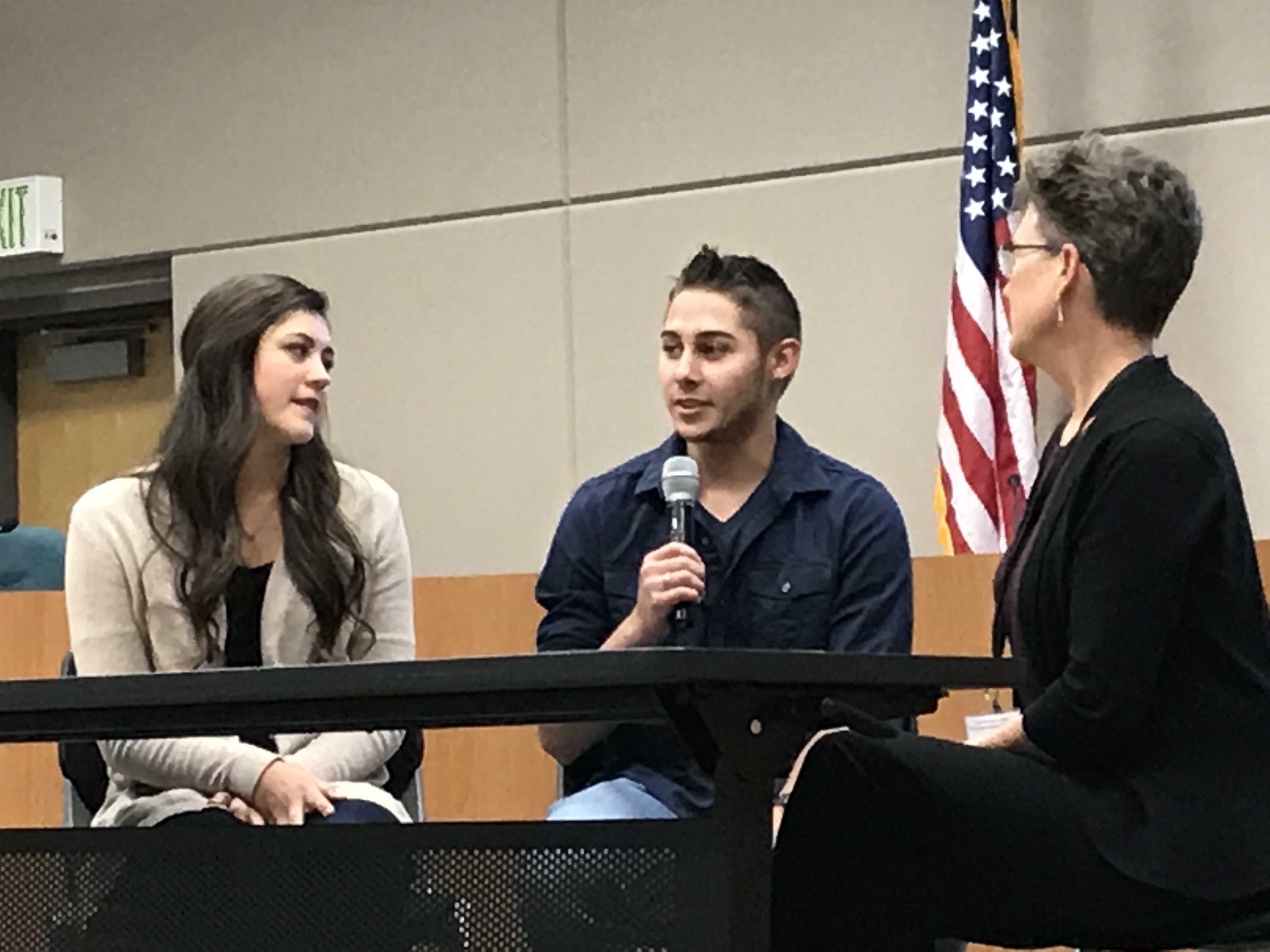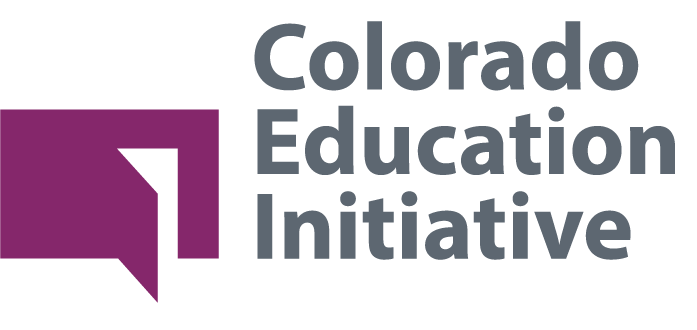District, School Leaders Connect to Explore Student-Centered Pathways
November 1, 2017
“All systems have to define their own context. Culture and ownership is key. At the same time, similar districts experience similar things—there’s a lot to learn from each other.” –Summit participant
November 1, 2017
On October 30, more than 300 district leaders from across Colorado gathered at the Graduation Guidelines Summit at the Adams 12 Conference Center, to discuss how to adapt Colorado’s graduation guidelines with gusto. The event focused on strategies for engaging students at a deeper level, resulting in graduates who are ready to successfully enter college, the workforce, and other postsecondary endeavors.
The Graduation Guidelines Summit was planned by the Colorado Education Initiative (CEI) and Jobs for the Future (JFF), in partnership with the Colorado Department of Education (CDE). Educators participated free of charge thanks to the generosity of the William and Flora Hewlett Foundation.
“Colorado is one of a handful of states leading the charge to prepare students now for a future of work that is rapidly evolving,” said Rebecca Wolfe, associate vice president at Jobs for the Future. “Today’s gathering provided an exciting opportunity for districts and schools from all over Colorado to showcase how learner-centered practices enable students to engage with rigorous content and develop the deeper learning and career skills that will prepare them for post-secondary education and career success.”
Participants had a variety of opportunities to learn from their peers about implementing measures that align innovative teaching practices with state policy.
The day began with Lessons from the Field, a keynote session that addressed the process involved to transition to a personalized, competency-based approach. Principal Bill Summers and Superintendent George Welsh from Cañon City Schools discussed their strategies for shifting culture and implementing a work-based learning curriculum. The transformation of Cañon City High School into a career pathways institution resonated with many who are working to provide avenues for students to discover where their interests lie and pursue appropriate instruction.
West Grand School District Superintendent Darrin Peppard found affirmation and inspiration from the keynote.
“Our district mirrors Cañon City in many ways,” Peppard said. “We are starting in a similar place and it’s reassuring to see success and continued opportunities and mindsets for growth from a district with so many similarities. Going forward, our journey will encompass changes in mindset, hard looks in the mirror, and new ground being broken with our instructional model. It was inspiring to see others having success on their journey.”
Peppard and representatives from 70 other Colorado districts spent the rest of the day at breakout sessions where teachers, counselors, superintendents and other school administrators presented strategies and lessons learned related to student success. When the breakout sessions concluded, Misti Ruthven, executive director of postsecondary readiness at CDE, provided policy updates and myth-busting related to the day’s topics. Ruthven also provided a list of program and grant resources available to help districts reach their goals.
The day reached a fitting conclusion as Robin Russel, graduation guidelines manager at CDE, interviewed two seniors from Horizon High School who have found their career interest and advanced their learning to align with their aspirations. Rielyn Sosa and Mark Gonzalez designed their last year of high school to include classes at Bollman Technical Education Center.
 Known as concurrent enrollment, this option to participate in career and technical education courses gives students a jump-start in their pursuit of work and college options. As in the case with Sosa and Gonzalez, many students who engage in concurrent enrollment graduate from high school with certifications that present increased options for entering the workforce immediately.
Known as concurrent enrollment, this option to participate in career and technical education courses gives students a jump-start in their pursuit of work and college options. As in the case with Sosa and Gonzalez, many students who engage in concurrent enrollment graduate from high school with certifications that present increased options for entering the workforce immediately.
Sosa will graduate with CNA certification and plans to attend college and become a nurse. She credits her teachers and the SOAR Honors Program for igniting her interest in healthcare. Gonzalez would like to pursue a career in construction, with plans to study business management and architecture in college. He will graduate from high school with OSHA certification. His desire to work in construction stems from working with his dad since he was a child.
Russel was pleased to wrap up the day with student reflections.
“It’s so refreshing to talk with students about their experiences! They are the voices that could be – should be – central in our planning,” Russel said. “One message that I heard often at the Summit was that we have to be more strategic about listening to students and engaging them in the process.”
After Summit participants reviewed the student-centered programs already in place and heard from students, they continued to ask questions, and compare notes. It became clear that now is the time to take action, and they are ready to craft learning environments where students can experience the world of work and college before they graduate from high school.
CEI plans to continue working side-by-side with schools and districts as they focus on implementing rigorous capstone/portfolio/performance assessment approaches to meeting Colorado’s graduation guidelines. Recent funding from national organizations will boost CEI’s efforts to share proven best practices and increase equitable outcomes.
“We’re looked at as experts and leaders in Colorado, but that comes from a 10-year history of working with and learning from the state’s districts and schools,” said CEI president and CEO Rebecca Holmes. “It’s great to see that national partners are excited by the way our most innovative districts are revisiting and redesigning the ultimate outcomes of the K-12 experience in Colorado. Whether we are working alongside a district superintendent, school leaders, or part of a collective effort with classroom teachers, state officials, and communities, our team is passionate about redesigning learning at scale to improve outcomes for all kids.”
